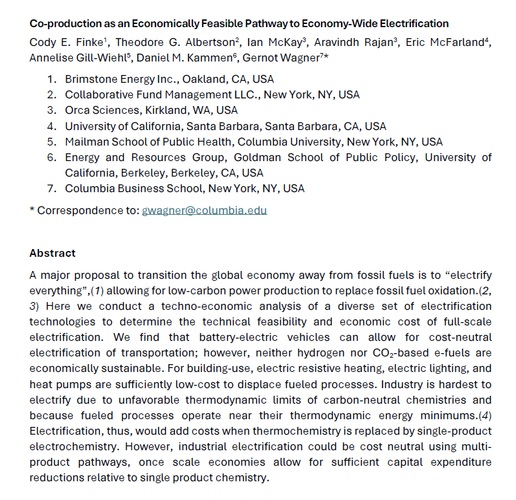Climate Change and the Energy Transition
Spring 2023 MBA half-course
M - B Term, 8:30 to 11:45 AM
Credit hours: 1.5
Method of Instruction: In Person
For better or worse, climate change is already affecting American and global business. Some industries will be transformed by climate change and the policies that respond to it. For example, the coal industry, a mainstay of advanced economies since the start of the industrial revolution, is already collapsing. The oil and gas industry will be radically transformed and reduced in scale. The automobile industry will be transformed, with the growth of electric vehicles leading to the entry of new players in both vehicle production and component production for the first time in half a century. Construction and real estate will also be transformed. Tourism and many other leisure activities will undergo profound changes, and agriculture is already experiencing major challenges. This course will provide a framework for thinking about climate change and its consequences for business. The perspective taken will be that of senior executives or CEOs in industries affected by climate change. The course is intended for students who are interested in consulting careers, who are likely to encounter these issues as they move between companies and industries. It is also relevant for students interested in corporate strategy, which in many cases will be affected by the issues in the course. And for students going into fund management, who will need to think about the challenges that climate will pose for the firms that they invest in and to analyze which companies will be well-placed to cope with these. The course is also relevant for students interested in impact investing, green investing/SRI, and careers that have a direct relationship to environmental issues. It will also be of relevance to those seeking careers in the investment, consulting, or even general management area, where there will be issues relative to a firms or investor's social-responsibility, or to project choice in the face of environmental impacts, that even mid-level managers will have to worry about.
Division: Economics

